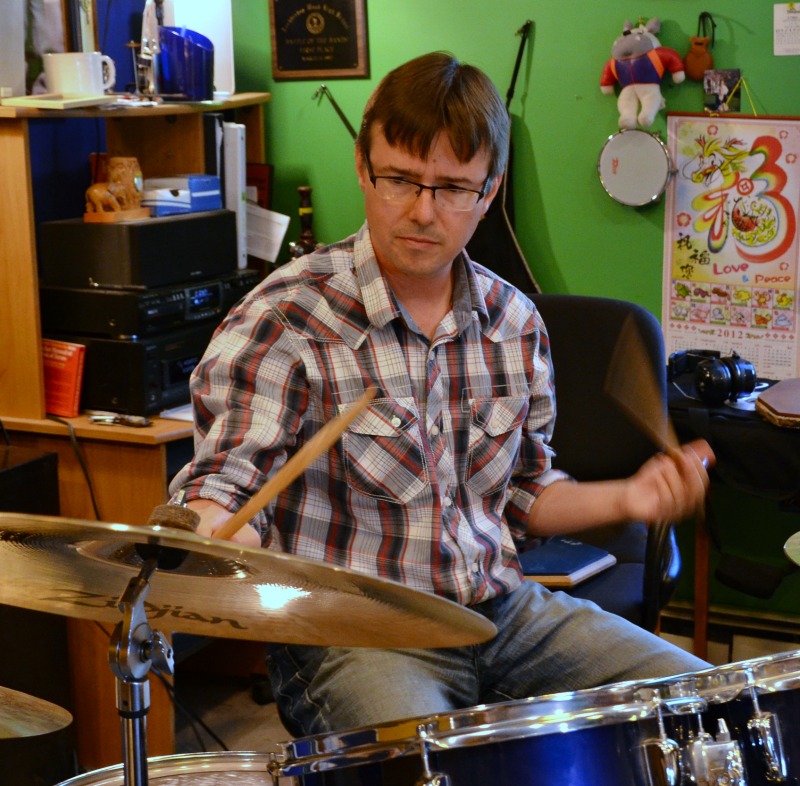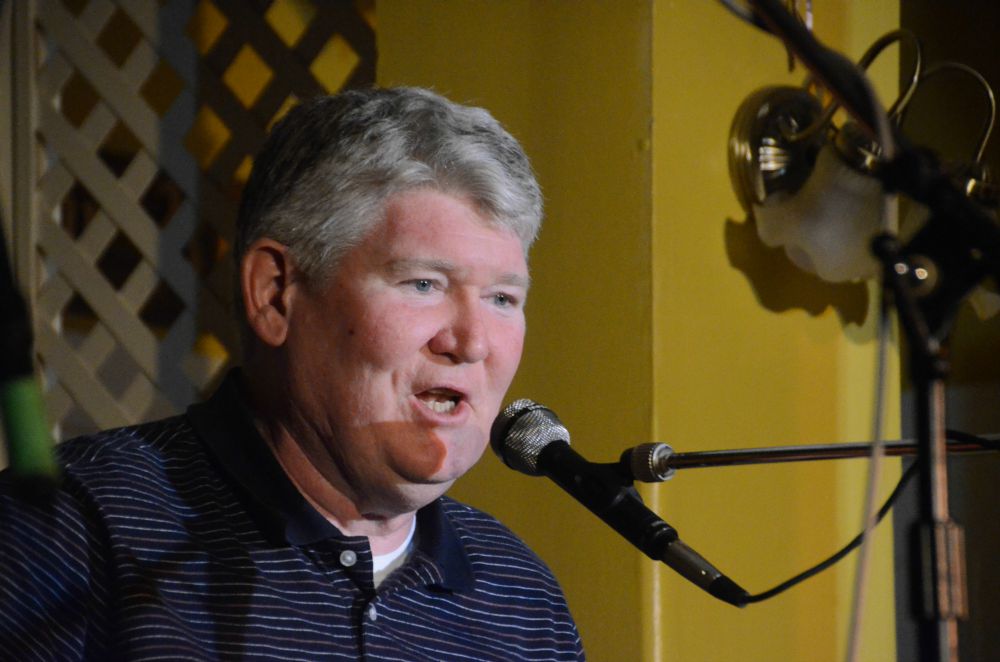Sean Kennedy was a reluctant percussionist.
“I was a piano player. My mom and dad told me I had to play piano when I was young, starting in fourth grade.”
When he was in 8th grade at St. Catherine of Sienna School in Horsham, Archbishop Wood High School sent literature to the school recruiting prospective band members, and inviting them to a meeting.
“If it wasn’t for a persistent nun, I never would have gone to that meeting. She said, ‘you should go to this meeting. Take this flyer home to your parents and let them know.’ I never showed them the letter. The night of the meeting, late spring of 8th grade, the nun called. She said, ‘put your mother or your father on the phone,’ and 15 minutes later I was being driven over to the meeting.”
Which is how Kennedy wound up playing xylophone in the band—not a big stretch for a piano player.
Then, at one early practice, the snare drum line started to do its stuff.
“I had never heard live drums in my life. The moment the battery started banging out 16th notes, I could never forget that sound. I was standing looking from behind the xylophone, and I thought: Those guys are good. That’s when I got excited about being a drummer.”
Fast-forward about 25 years. Sean Kennedy is now a music teacher, instructor, director of the jazz band, and 6th grade band director at Sandy Run Middle School in Upper Dublin. He’s also an accomplished professional jazz musician and arranger, playing drums in the Sean J. Kennedy Quartet, which has opened for Wynton Marsalis and the Lincoln Center Jazz Orchestra at the Kimmel Center. He’s played with the Philly Pops Orchestra, and he’s accompanied numerous other groups, including the Philadelphia Boys Choir and Chorale. He’s recorded four CDs.
One more thing: Sean Kennedy is a quarter-finalist in the second annual music educator Grammy, a prize that offers a $10,000 honorarium for the winner.
“One of my students parents nominated me for it, Kennedy says. “About 7,000 people were nominated.” The Grammy folks contacted him, asked him to fill out online list of questions. He then moved on to the second level.
“The second level was more complicated. There were more questions, and they wanted videos. They wanted uncut videos of me teaching students, and they wanted to see the kids’ interactions. We put video camera in the back of the band room. They also wanted a video of me answering four or five questions. What do I do different from other people. What are my proudest moments, those kinds of things.”
Finally, they wanted video recordings of people talking on Kennedy’s behalf. One who responded was a professional singer, once a piano and flute player in the jazz band.
“She’s going to be a star. She was in West Side Story on a European tour, as Maria.”
Another was Marc Zumoff, Sixers play-by-play announcer. Kennedy taught his son. And it probably won’t hurt that he has connections with players in the Conan O’Brian band, who also submitted videos. “I’m friends with two of those guys.”
After that, another form, this one longer … and now he waits. Finalists are announced in September.
The experience seems to have been humbling, and affirming at the same time. Many teachers go through their entire careers, and might not hear this kind of feedback often.
“The coolest thing was how quickly all of these people responded. It’s really a cool thing. If I go no further in this Grammy process, I consider this gift. Even though people may not otherwise say it at time, it shows me that the job of teaching music is important.”
That Kennedy has wound up in such prestigious company is in large part due to the influence of his own music teachers, including Wood’s band director Gary Zimmaro.
Visit the studio attached to his home, and it’s easy to see that when they infected him with his passion for music, jazz particularly, they did a pretty good job of it.
Instruments and music memorabilia fill the crowded little space. In a place of prominence is five-piece drum set. Every other square inch of the room is cluttered with musical instruments. Cymbals are stacked up in one corner. A set of marimbas—like a xylophone, but a lot bigger—is off to one side of the room, partially covered by a plastic tarp. A shiny chrome snare drum is over on a shelf. Music books, many of them tattered, seem to fill in all the spaces between the instruments.
There’s a big poster of the famous—and infamous—jazz drummer buddy Rich hanging on one wall. Over the door is a picture of Kennedy with the gifted jazz trumpeter Maynard Ferguson.
Across the ceiling, where some people might have canister lights, Kennedy has lights shaped like drums.
Oh, yeah, those teachers of his got him good. They showed him that it was possible, even desirable, to be two things at once: a dedicated music educator and a professional musician.
“Probably toward the end of my sophomore year, I was really getting into the band. I was always the last one coming out of band practice. Ray Deeley, our drum guy, he played with Sinatra. Ray’s stories of real-life music, it really blew me away. I wanted to learn more about big band, bee-bop, everything.”
Other instrument instructors had the same background. They taught music. They played music. They told good stories about real-life gigs.
Kennedy distinctly recalls when he decided to be both an educator and a professional musician. “I was with the band, outside of the girls gym (at Archbishop Wood). We were getting ready to play at a pep rally. I said to myself, I want to do this, whatever ‘this’ is.”
He went on to earn his BS and MS in percussion at West Chester. He’s been an educator ever since, taking joy in those small “ah-ha” moments, realizing he’s gotten an important point across.
“Most of the kids are receptive to everything. They’re like blank slates. If I come in and say, let’s listen to Bach,’ and then I play the trumpet solo from ‘Penny Lane,’ they say, ‘Hey, that sounds like Bach.’ It’s great that a 12-year-old is putting these things together.
“Teaching music and playing music for me, there was never a distinct separation. Most of my early heroes did both. What a great gig. I was patterning my future after these guys. I figured, hey, they have a car, and they’re feeding their families, and it’s all with music. I’m very fortunate to live in two worlds. You really can’t get to0 much better than that in music-making.”


